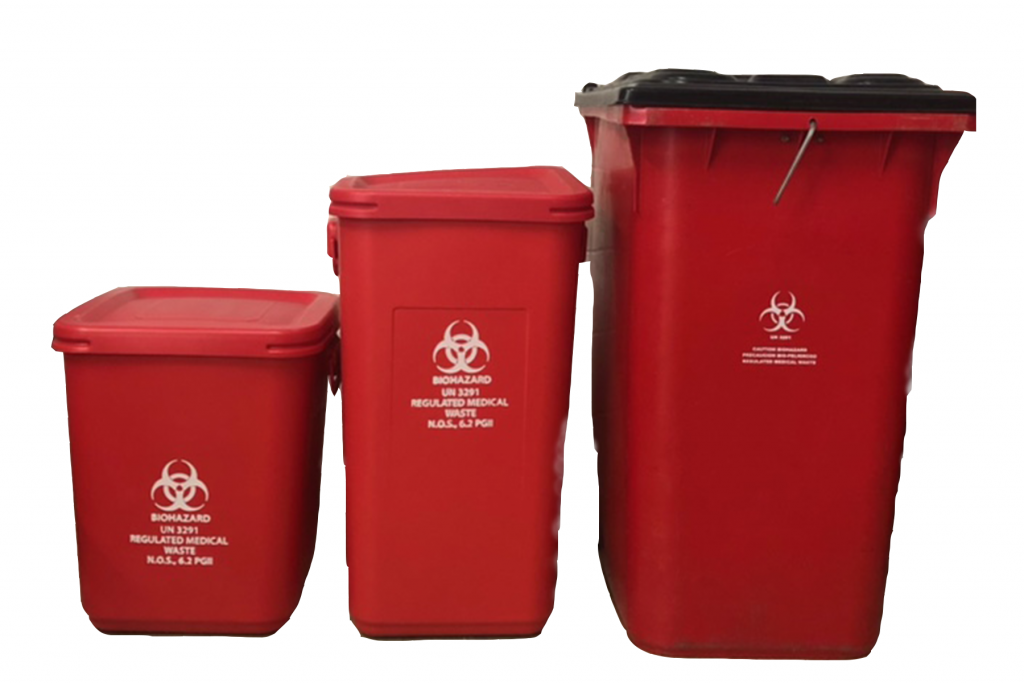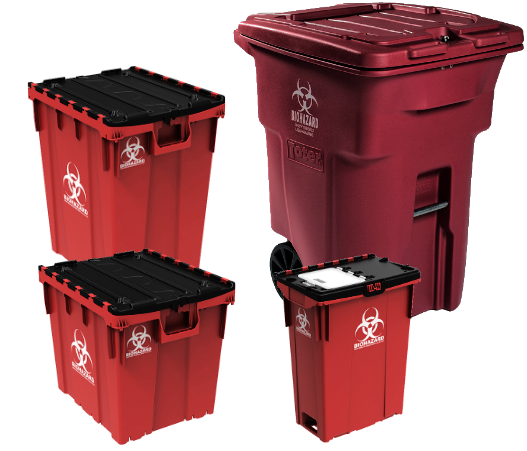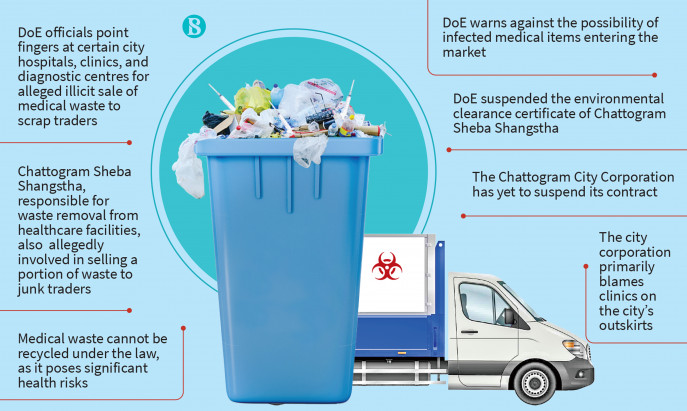Safety and security First: Your Overview to Accountable Medical Waste Removal Services
Safety and security First: Your Overview to Accountable Medical Waste Removal Services
Blog Article
Remain Ahead of Regulations: Specialist Advice on Medical Garbage Disposal
In a globe where the health care market is frequently developing, it is essential for medical centers to stay ahead of policies when it comes to the correct disposal of clinical waste. From understanding the different classifications of medical waste to applying the ideal collection and partition techniques, this conversation will offer valuable insights and actionable suggestions to help centers remain in advance of policies in the ever-changing landscape of clinical waste disposal.
Recognizing Clinical Waste Categories
Understanding medical waste categories is necessary for appropriate disposal and management in medical care centers. Clinical waste refers to any kind of waste generated by healthcare tasks that may position a risk to public health and wellness or the environment. It is crucial to classify clinical waste accurately to ensure its risk-free handling, therapy, disposal, and transport.
There are several classifications of clinical waste that healthcare facilities need to be aware of. The most typical groups consist of contagious waste, pathological waste, sharps waste, pharmaceutical waste, and chemical waste. Each group has particular guidelines and guidelines for its correct management and disposal.
Infectious waste includes products polluted with blood or other physical fluids, such as handwear covers, dress, and laboratory cultures. Pathological waste describes human cells, organs, or body components that need unique handling and disposal. Sharps waste consists of made use of needles, syringes, and other sharp items that can trigger injury and transmit infections. Pharmaceutical waste makes up ended, unused, or polluted medicines that require careful handling and disposal. Lastly, chemical waste includes solvents, disinfectants, and other chemical compounds used in healthcare facilities.
Staying Up-To-Date With Regulatory Changes
Remaining existing with regulative modifications is vital for health care facilities to ensure compliance and appropriate management of clinical waste disposal. medical waste removal near me. With laws frequently progressing, it is important for medical care centers to stay up-to-date to avoid fines, fines, and potential injury to the atmosphere and public health
To remain ahead of governing modifications, healthcare centers must establish a system for surveillance and tracking updates. This can be done by registering for regulative e-newsletters, going to conferences and workshops, and actively taking part in industry organizations. Additionally, centers ought to mark an employee or team in charge of staying notified and sharing info to pertinent stakeholders.
Regular interaction with regulatory companies is additionally essential. Medical care facilities ought to develop relationships with regional, state, and government agencies to ensure they know any modifications in guidelines that may impact their waste administration techniques. This can be done through routine conferences, engagement in public comment periods, and positive involvement with governing agencies.
Moreover, healthcare centers ought to take into consideration partnering with waste administration firms that focus on clinical waste disposal (medical waste disposal services with WasteX). These companies are typically skilled in the most recent regulations and can offer support and assistance to make certain conformity
Applying Proper Collection and Segregation Approaches
To properly take care of clinical waste disposal, healthcare centers should develop appropriate collection and partition approaches based on regulative guidelines. Carrying out these techniques makes sure the risk-free handling and disposal of possibly harmful materials, safeguards the environment, and reduces the risk of infections and injuries to healthcare workers and the basic public.
Correct collection and partition techniques involve using marked containers and classifying systems. Medical care facilities ought to provide plainly classified containers for various sorts of clinical waste, such as sharps, transmittable waste, pharmaceutical waste, and non-hazardous waste. These containers must be color-coded and clearly marked to stay clear of confusion and promote very easy recognition.
In addition, health care facilities need to educate their personnel on the correct treatments for gathering and segregating clinical waste. This includes enlightening them on the various types of waste, the ideal containers to utilize, and the significance of following laws and guidelines. Regular training sessions and correspondence course need to be carried out to ensure that employee stay up-to-date on ideal practices.
In addition, health care centers ought to develop a system for regular collection and disposal of clinical waste. This may include partnering with licensed waste administration firms that concentrate on medical garbage disposal. These firms will make sure that the gathered waste is moved and dealt with in compliance with governing needs.
Selecting the Right Disposal Approaches

Incineration is among the most efficient and typical approaches for disposing of certain types of medical waste, such as pathological waste and sharps. It involves the controlled combustion of waste at high temperatures, reducing it to ash. However, incineration can release harmful pollutants right into the air and add to air contamination.

Various other disposal methods consist of chemical treatment, microwave therapy, and landfilling. Chemical treatment entails using chemicals to neutralize the waste and sanitize. Microwave treatment utilizes microwave power to warm and disinfect the waste. Landfilling includes hiding the waste in an assigned landfill location (medical waste disposal services with WasteX). Landfilling needs to be the last hotel due to the possible risk of contamination to soil and groundwater.
Making Certain Conformity Via Documents and Training
After meticulously considering the appropriate disposal methods for clinical waste, medical care centers have to make certain conformity with guidelines and decrease ecological effect by carrying out efficient paperwork and training procedures. This step is essential in maintaining a safe and lasting environment for both healthcare employees and the basic public.

Health care employees who manage clinical waste must get proper training on waste partition, taking care of, and disposal treatments. By giving thorough view it training, medical care centers can equip their personnel to make educated decisions and minimize the risk of improper waste disposal.
Verdict
Finally, remaining in advance of laws in clinical garbage disposal is vital for medical care facilities. medical waste removal near me. Recognizing the various categories of medical waste, remaining updated with regulatory adjustments, carrying out appropriate collection and segregation approaches, selecting the suitable disposal approaches, and ensuring conformity through documents and training are all essential actions. By complying with these guidelines, medical care organizations can effectively get rid of and handle of medical waste disposal services with WasteX clinical waste in a secure and responsible fashion
From comprehending the different classifications of medical waste to applying the best collection and partition techniques, this discussion will offer useful insights and workable suggestions to assist facilities stay in advance of policies in the ever-changing landscape of clinical waste disposal. - medical waste disposal services with WasteX
The most common categories include contagious waste, pathological waste, sharps waste, pharmaceutical waste, and chemical waste. Health care centers must give plainly classified containers for various kinds of clinical waste, such as sharps, infectious waste, pharmaceutical waste, and non-hazardous waste. Healthcare facilities should establish a detailed system to tape-record and track all facets of medical waste disposal, including kinds of waste produced, amounts, and disposal approaches made use of. Healthcare employees that manage clinical waste should obtain appropriate training on waste partition, handling, and disposal procedures.
Report this page